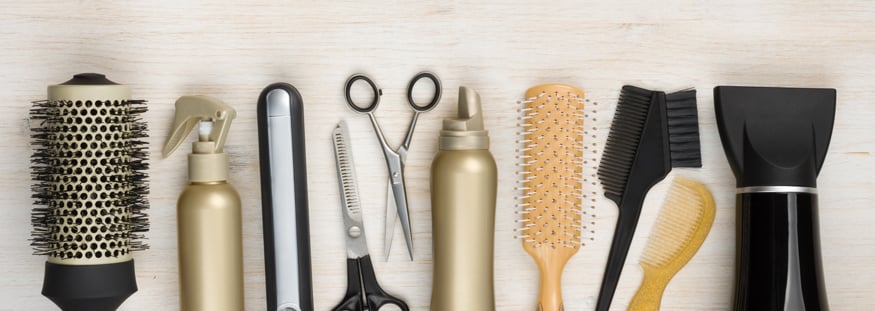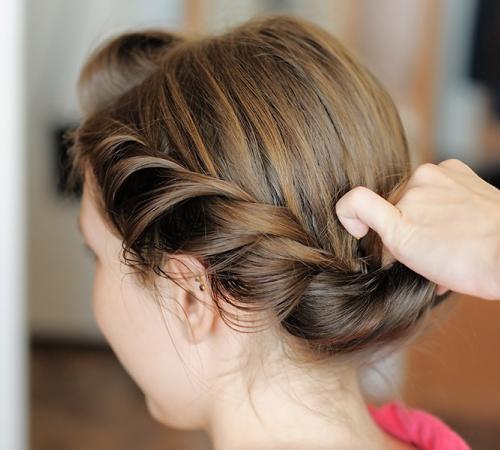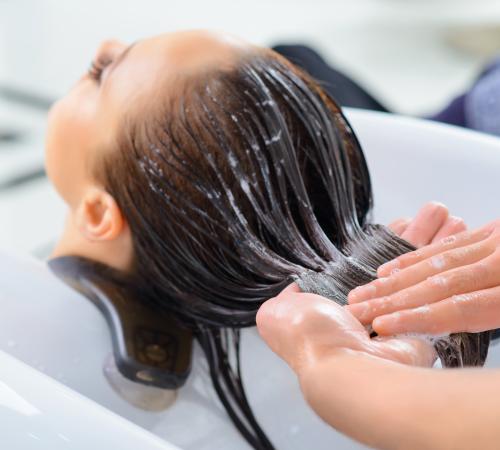

The UK beauty and wellness industry is booming and is showing no signs of slowing down. With revenue in the Beauty & Personal Care market totalling £11.82b in 2018, it’s expected to continue to grow annually by 2.4%. So, if you love all things beauty and have an entrepreneurial streak, it might be the right time to consider turning your hobby into a career and start your own beauty business.
Competition is strong with over 42,000 hairdressing, barbering and beauty businesses currently operating in the UK, and beauty salons and nail bars are in the top ten most popular independent business start-ups. But, if you have the passion and drive to become an expert in your field, you too could be running a business doing what you love.
To help you decide if it’s the right choice for you, we’ve put together a guide that takes you through the questions you need answered and the steps you need to take to develop a career in the industry and know how to start a beauty business. We cover everything from training for qualifications, to business plans and creating a tailored beauty insurance policy.
What is a beauty & wellness therapist?
What does a beauty & wellness therapist do?
Beauticians and wellness experts are skilled professionals who provide a range of treatments and therapies designed to leave clients looking and feeling great. Generally, when you become a beauty therapist, you’ll be trained in one or more of the following areas:
- Hair removal, including waxing and laser
- Spray tans and sunbeds
- Manicures and pedicures, including nail extensions, acrylics and gels
- Facials and skincare treatment plans
- Eyebrow threading, tinting and plucking
- Lash enhancement, including lifting and extensions
- Makeovers and semi-permanent make-up
- Massage, aromatherapy, hydrotherapy and reflexology
While some therapists continue to provide a full range of therapies throughout their careers, others choose to specialise, train in the latest trends or even invent new techniques of their own.

What skills do you need to become a beauty or wellness therapist?
As an aspiring beautician or wellness expert, it’s essential you have a passion for beauty and make-up or wellbeing, and an eagerness to continually learn new skills and techniques in an ever-evolving industry. But there are other necessary attributes that shouldn’t be overlooked:
- Great communication and interpersonal skills – to put clients at ease and provide a positive experience
- Tact, diplomacy and trustworthiness – to handle client requirements sensitively and professionally
- An ability to sell treatments and products – to build customer loyalty
- Some artistic skill and precision – to carry out intricate beauty treatments
- Stamina – to spend long days on your feet (comfy shoes are absolutely crucial!)
- Cleanliness – to maintain excellent hygiene standards for yourself, your uniform, work area and equipment
- Basic administrative skills – to carry out tasks such as answering the telephone, using appointment systems, keeping client notes, and checking and ordering stock
What are the working hours of a beauty or wellness therapist?
Your working hours will depend on where you work. For a full-time position in a salon or spa, you’re likely to work a standard 8-hour day, 5 days a week, with some evenings and weekends. Some salons also offer part-time positions, which is ideal if you’re looking for a regular income but have other commitments to work around.
If you decide to become a self-employed beauty therapist, you have the flexibility to work as many or as few hours as you like, based around your personal schedule. Depending, of course, on demand for your services.
How much does a beauty or wellness therapist earn?
In the UK, the starter salary for a qualified beautician working full-time is anything between £15,000 and £20,000. But with more experience, specialised skills and monetary tips from clients, you could be earning well over that.
If you’re self-employed, how much you earn depends on how many hours you work, but there’s potential to earn around £240 per day. It’s also worth remembering that the more in demand you are, the more money you can earn. So, either offering a broad range of treatments or finding a niche to specialise in 7 can be lucrative.
A salon owner, running a busy and successful business, can be earning as much as £50,000 to £100,000 or more. When you’re working as a trainee, before you’ve qualified, your earnings will be much lower than the average starting salary but you’ll be gaining valuable knowledge and experience as you work.

What qualifications do you need to be a beauty therapist?
To become a fully qualified beauty therapist you need to gain accredited certifications. These qualifications show employers and clients that you meet the UK industry standards. They’re also recognised by insurers, allowing you to work as a professional insured beauty therapist with adequate commercial insurance.
If you decide to train at college, you’ll need to complete an NVQ Level 2 and 3 in Beauty Therapy to fully qualify as a beautician. You might choose to train at a private beauty school instead, where courses are much shorter but also a lot pricier. If you do study privately, make sure you receive an accredited qualification identified by CIBTAC and CIDESCO 10 .
Below is a selection of certifications that will qualify you to work as a beauty therapist in the UK.
NVQ Levels 1 – 3 11
The National Vocational Qualification is a work-based qualification, usually studied for at college and typically taking two years to complete. The course combines practical training with theory work. You can study general beauty therapy, make-up and nail services as well as more specialist areas like spa therapy. If you’re keen to learn managerial and business skills, you can continue studying to level 4, this could help you learn how to open a beauty salon or how to start a beauty business from home.
ITEC Diploma 12
If you’re looking to work abroad or on cruise ships, the ITEC Diploma is ideal as it’s recognised in over 33 countries. The course teaches you the skills and understanding for advanced beauty specialisms including facial treatments, manicure/pedicure and waxing.
BTEC in Beauty Therapy 13
Seen as a vocational equivalent to A-levels, a BTEC National Diploma gives you industry-specific skills. Courses cover the scientific principles behind therapies, as well as basic skills in beauty therapy and a range of complementary therapeutic practices, from massage to aromatherapy.
CIDESCO Diploma in Beauty Therapy 14
The CIDESCO diploma is an industry recognised qualification and is an ideal choice if you choose to study at a private beauty school. The course mixes practical training and theory, and students must pass practical exams, a written exam and a project assignment to graduate.
Apprenticeships 15
If going to college full-time isn’t for you, an apprenticeship might be the solution. For 30 hours a week you learn on-the-job alongside experienced professionals, getting paid the national minimum wage for apprentices, and gaining valuable real-world skills and experience. You also spend one day a week in the classroom studying for a qualification. Your apprenticeship will take one to five years to complete, depending on the level of your qualification. After completion, apprenticeships often
lead to full time employment.
Specialised Courses
Fully qualifying as a beauty therapist doesn’t mean you have to stop training, there are so many options on offer to you to further your skills.
- Choosing a specialism can put you ahead of the competition. You could try anything from laser and light therapies to microblading to non-surgical treatments. Just remember to make sure that any qualifications are industry recognised.
- In such a quickly-evolving industry, there are always new products, treatments and techniques entering the market, and brands will often offer training on them.
- If you’re thinking about running your own business, you might want to consider completing a foundation degree or HND in beauty therapy management or salon business management.

Where can a beauty or wellness therapist work?
Once you’ve fully qualified as a beautician or wellness therapist, you need to decide where in the industry you want to work. Do you want to work for someone else or be your own boss? Do you want to work at home or travel the world? Do you want to work full-time or around existing commitments? There are many options to choose from, the main ones being:
Working in a salon
With thousands of beauty salons throughout the UK, there are always opportunities for qualified staff and many salons will offer both full and part-time employed positions. Working in a salon offers you all the benefits of being an employee, such as paid holiday, sick pay and maternity leave.
Travel and leisure industry
Working in the travel and leisure industry, on holiday resorts or cruise ships, is a fantastic opportunity to see the world while building your skills and experience. It’s also a great option if you want to do seasonal work in summer or winter resorts.
Renting a chair
Renting a chair in a salon is like a stepping stone between employment and setting up a beauty salon. It allows you to become self-employed and reap the flexibility and monetary benefits that come with it, in the safety of a salon environment . If you choose this option, do make sure that you have a service contract with the salon and that they adhere to the HMRC guidelines for renting a chair.
Setting up a beauty business from home
If you have a spare room in your house, starting a beauty business from home could be ideal for you. You can see clients when it suits them and you, rather than sticking to salon opening hours. It’s easier if you already have a loyal customer base, as having regular clients is key to creating a secure income.
Starting a mobile beauty business
Much like setting up a home salon, opening your own mobile beauty business, where you treat customers in their own homes, is hard work but can offer you flexibility and can be lucrative. Many clients find it easier to be treated at home because they have small children or have disabilities. So, if you have a car and are willing to travel, you could tap into these markets.
Opening a beauty salon
Most beauticians dream of running their own salon one day and it is an achievable dream, albeit one that requires a lot of research, planning and hard work. It may be sensible to manage a salon first to get a better grasp on starting a beauty business, get experience with the business side or get a salon management qualification. There may be an option to buy a salon that’s already up and running, which would make the whole process a lot less work.
On a freelance basis
Booking apps such as Treatwell and Urban allow self-employed beauty and wellness professionals to offer their services on a ‘gig’ basis, including hairdressing, nails, hair removal and massage. By advertising their treatments and providing real-time availability, professionals can attract new customers who are searching for the services they offer. This can be done on a mobile basis, from their own home, or from a salon.
How to start a beauty business
Whichever you’ve decided is the best beauty business to start, whether it’s a salon, mobile or home-based business, research and planning will help to give you the best chance of success. To get you started, we’ve put together four top tips for setting up a beauty business.
Checklist for opening a beauty salon, home-based or mobile beauty business:
1. Write a beauty salon business plan
The first and most important thing you can do is it to write a detailed business plan that lays the foundations for your business and how it will operate. The process of writing the plan should help you to understand your business goals more clearly.
The business plan for your beauty salon might include:
- Your business name, concept, USP and goals
- The products and services you’ll offer
- An analysis of the local beauty market and competitors
- Target clients and marketing strategies
- A SWOT (Strengths, Weaknesses, Opportunities and Threats) analysis
- Sales forecasts and budgets
Regularly review your business plan to remind you of your goals and what you’ve achieved, and
update it as your business evolves.
2. Get insured
Whether you’re renting a chair in a salon or running your own salon, you’ll need specialist insurance for beauty therapists to include combined professional, treatment and public liability insurance and, if you have any employees, employers’ liability insurance.
Insurance protects you, your business, employees and clients, and will cover the costs if you have to defend a legal claim against you or pay compensation.
3. Work out your finances
The cost of setting up a beauty salon is likely to be substantial, with estimates between £10,000 and £25,000. Starting a home-based or mobile beauty business will be significantly less.
To get an understanding of what your start-up costs will be, list all your outlays, including:
- Renting or leasing premises
- Furnishing the salon
- Purchasing or renting equipment, tools and products
- Paying staff salaries
- Business rates
- Treatment licenses
- Business insurance
- Getting a website built
- Business phone line
- Till or point of sale machine
If you don’t have savings to cover the start-up costs you may want to look at funding options. It’s worth checking out the government-backed Start Up Loans (you can borrow between £500 and £25,000 and you’ll get free support and mentoring).
4. Find out about licenses and regulations
Legally, you must register your salon and apply for a UK beauty salon license with your local council or authority. This license will cover some beauty treatments, but you may need additional licenses to legally perform all the treatments you plan on offering. Make sure you check carefully so that you’re not caught out.
You’ll also need to investigate Health & Safety and First Aid regulations 28 as there are very strict laws that you must adhere to. And if you’re planning on playing music or relaxing sounds and serving a complimentary glass of bubbly to your customers, you’ll need to obtain licenses for both.
Hopefully you now have a better understanding of what’s involved in becoming a beauty therapist and maybe this guide has helped you decide if it’s the right route for you. Wherever you are in your career, whether you’re just starting out working in a salon or running your own salon, working as a beautician can be a hugely rewarding career. Not only will you be helping people to look and feel their best, you’ll also be doing work that you love.
1 https://www.statista.com/outlook/70000000/156/beauty-personal-care/united-kingdom?currency=gbp (external link)
2 https://www.nhf.info/advice-and-resources/hair-and-beauty-industry-statistics/ (external link)
3 https://www.ncchomelearning.co.uk/ultimate-guide-becoming-beautician (external link)
4 https://www.salonsdirect.com/blog/beauty-therapists-working-day-look-like/ (external link)
5 https://nationalcareers.service.gov.uk/job-profiles/beauty-therapist (external link)
6 https://www.careeraddict.com/become-beauty-therapist (external link)
7 https://rosehadleylondon.co.uk/how-to-specialise-as-a-beauty-therapist-and-earn-more-salary/ (external link)
8 https://startups.co.uk/how-to-start-a-beauty-salonspa/ (external link)
9 https://www.salonsdirect.com/blog/qualifications-need-become-beauty-therapist/ (external link)
10 https://www.salonsdirect.com/blog/qualifications-need-become-beauty-therapist/ (external link)
11 https://www.cityandguilds.com/qualifications-and-apprenticeships/beauty-and-complementary-therapies/beauty/3007-
beauty-therapy (external link)
12 http://www.itecworld.co.uk/qualification-category/beauty-therapy/ (external link)
13 https://qualifications.pearson.com/en/qualifications/btec-nationals/beauty-therapy-2010.html (external link)
14 https://cidesco.com/cidesco-diploma-in-beauty-therapy/ (external link)
15 https://www.lbta.co.uk/how-to-become-a-beauty-therapist/ (external link)
16 https://www.citizensadvice.org.uk/work/rights-at-work/ (external link)
17 https://www.handhaccountants.com/news-and-events/hmrc-guidelines-to-rent-a-chair-for-hairdressers/ (external link)
18 https://www.premiersoftware.co.uk/blog/business-advice/guide-to-buying-an-already-established-hair-salon/ (external link)
19 https://www.treatwell.co.uk (external link)
20 https://urban.co/en-gb/ (external link)
21 http://www.bqlive.co.uk/london-the-south/2017/04/10/news/treatwell-founder-reveals-the-secret-to-his-success-25555/ (external link)
22 https://www.nhf.info/advice-and-resources/blog/running-a-beauty-salon/10-tips-for-starting-your-own-hair-and-
beauty-business/#businessplan (external link)
23 https://startups.co.uk/business-plan-template/ (external link)
Disclaimer:
At Hiscox, we want to help your small business thrive. Our blog has many articles you may find relevant and useful as your business grows. But these articles aren’t professional advice. So, to find out more on a subject we cover here, please seek professional assistance.





